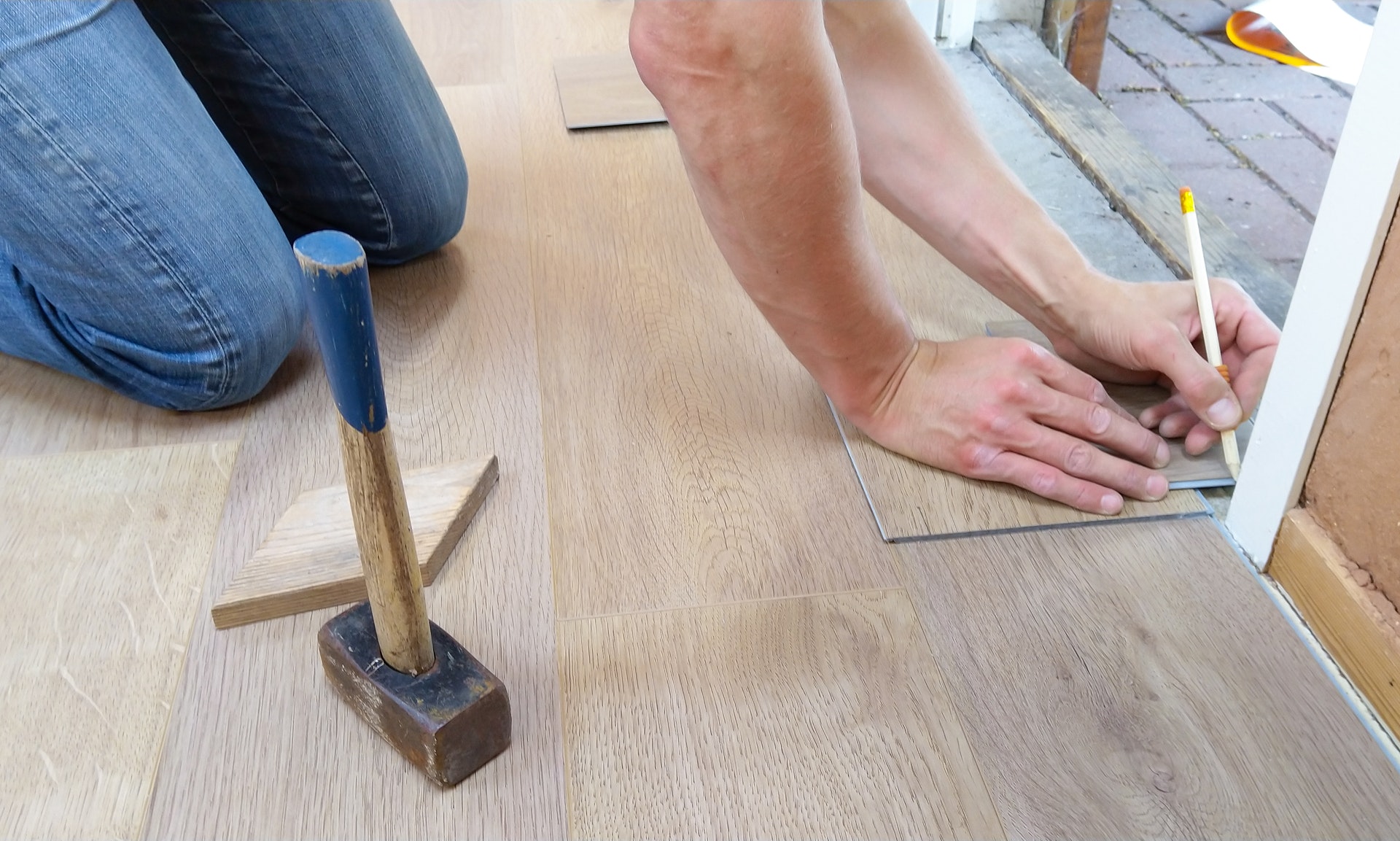What Is Vinyl Flooring?
Vinyl flooring is a type of multi-layered synthetic flooring. Made from materials like plastic, fiberglass and PVC, vinyl flooring typically comes in planks, tiles or sheets that can then be assembled. A core layer, potentially with an underlay or backing, makes up the bulk of the floor. Over this is an image layer, which can mimic a multitude of materials including wood and ceramic. A top wear layer of varying thickness protects the sublayers from damage.
Pros
Resilient: Vinyl flooring is known for being resilient. This means that most vinyl flooring is water-resistant and very low maintenance, with long-lasting durability. If it has a wear layer, vinyl flooring will usually not stain and can survive plenty of wear and tear, which makes it a good option for any highly trafficked areas. Some brands manufacture 100% waterproof vinyl floors—excellent for bathrooms or mudrooms.
Comfortable: Compared to materials like hardwood or stone, vinyl flooring has a “softer” and more “padded” feeling underfoot, thanks to its layered composition. These layers also insulate and help the floor maintain a consistent temperature no matter the season. Vinyl can also have soundproofing qualities, which serve to reduce both noise and echo in any room.
Affordable and easy installation: Vinyl is quite affordable and has an uncomplicated installation process that can be DIYed fairly easily.
Cons
Cannot be refinished: Since vinyl flooring consists of a single wear layer over the design layer, it cannot be refinished. Once the floor is damaged, the affected areas, or the entire floor, must be entirely replaced. This is especially true for sheet vinyl or low-quality vinyl.
Does not always add to resale value: Most of the time (though not always) vinyl floors do not have an impact on the resale value of a house or building. Low-quality vinyl floors, especially older floors, may even have a negative impact.
Not environmentally friendly: Manufacturing vinyl flooring requires the use of toxic chemicals, and after installation, vinyl floors have been known to emit VOCs (volatile organic compounds). Off-gassed VOCs can adversely affect health and an indoor environment, particularly without windows or ventilation, will lead to higher concentrations. If this is a concern for you, we recommend avoiding high-VOC vinyl flooring and choosing a low-VOC floor instead.

